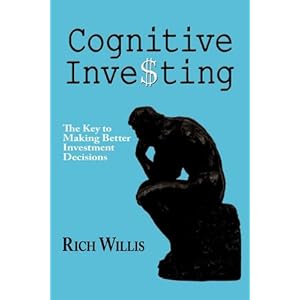3. It is difficult to maintain objectivity when making judgments about your own investing skill
In the first two parts of this series, I described how the long duration of the feedback process impedes the investment learning process, and how it is difficult to discern whether the quality of our investment decisions is due to luck or skill. In this section I will discuss another obstacle to learning the necessary skills for successful investing: the difficulty of being objective when making self-judgments.
In many of life’s endeavors, we have an inflated opinion of our own capabilities and attributes. Most drivers think they drive better than average. A majority of people think they are more attractive, smarter, and better communicators than average. I once read a survey in which something like 90% of college professors thought that they were better teachers than their peers. Some of these professors were even psychology professors who were well aware of such biases, but chose not to remember that inconvenient fact when it was applied to their own situation. Under most circumstances, it is rare for most people to be above average, and at least some of the people who think they are, are not really. This self-delusion can be detrimental if the topic at hand is the ability to make wise investment decisions.
If you are very confident that your decisions are good, you will see little need to actually verify this. What would be the point? You can easily recall your best decisions, or at least the ones that had the best outcome. But maybe you should not be so sure. And to really understand the quality of all your decisions, you should judge them all, rather than the few that had the best outcomes.
Many investors never examine old decisions to judge the quality of the decision-making process. More likely, they will make a quick judgment about whether the investment turned out ok and not compare it to any alternatives that they might have considered at the time of making the initial decision. It is easy to measure the result of an investment. It takes more work to determine how much to attribute to luck vs. skill and to compare the decision with alternative choices that could have been made at the same time.
The result of such as analysis may bring up unpleasant emotions if things did not turn out well. It might remind you of getting a bad grade on an important test in school. Blaming others or external circumstances is one way to avoid confronting the unpleasant reality that your decision process may have fundamental flaws. Avoiding an unpleasant self-evaluation saves mental effort, but does not put you in a better situation if a similar decision is required in the future. An accurate, objective evaluation of the quality of decision is necessary if one is to avoid making similar mistakes. Otherwise, nothing is learned and mistakes are repeated.
The skills of successful investing are learnable and this web site is designed to assist in that learning process. But in order to learn, sometimes one must take the painful step of determining where improvement is needed. Too many investors focus only on the end results, ignoring the road that they took to get there. Some roads are better than others, especially when traveling through inherently unfamiliar terrain. The roads taken in the future can make a huge difference over the course of an investor’s lifetime. But if we don’t accurately judge our own capabilities and shortcomings, it could be extremely difficult to find those better roads.

#1 by GARRY FRIEDMAN on January 9, 2013 - 1:01 pm
In any investing class I ever took, both grad and under grad, we studied efficient market hypothesis. Then the prof asked how many people think they can beat the market. Basically everyone raised their hands. At a hedge fund meeting, it would be 100% Garry Friedman (Remote mail response)
________________________________